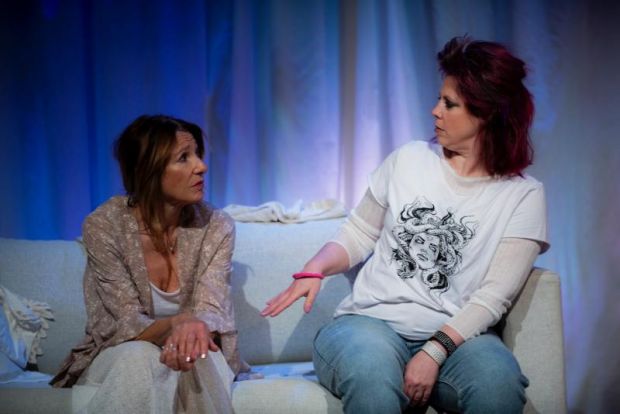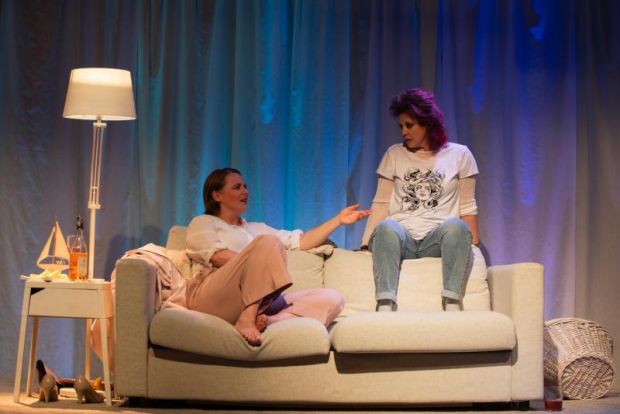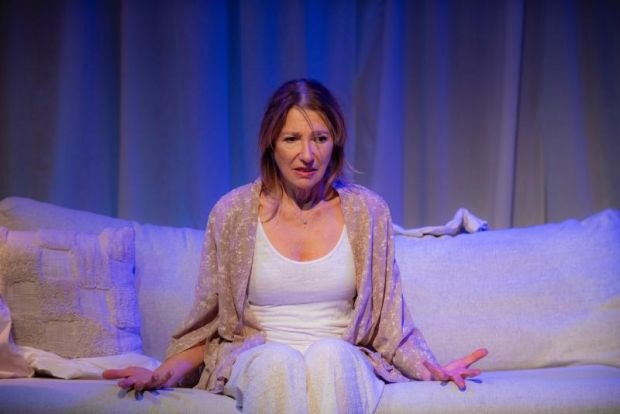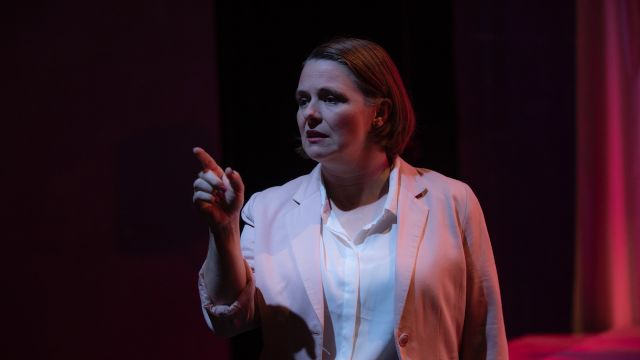The Long Game
Sally Faraday wants her play to ask questions – big questions – and throw it to the audience to think about the answers. Fair enough. Isn’t that what Chekhov said? The questions The Long Game seems to ask are sadly perennial. Why do sexism and misogyny persist? Why does sexual violence persist? In the patriarchy, how does a woman get to the top? And what are the consequences when she does? Why do some ‘realistic’ women go along with this because it’s just the way the world is?

Faraday sets her story at the highest echelons of political power. Miranda (Charmaine Gorman), a politician, is hugely, bravely ambitious. She promotes her credentials with feel-good videos. She can even see herself as Foreign Minister. But it’s a long game… Her mother, Gaye (Gloria Ajenstat) is a calculating game player. She’s no elected politician but she operates easily in the Canberra bubble: a party animal, sophisticated, glamorous, cynical - and ruthless in her advice to daughter Miranda about how to succeed. But there’s an older daughter: Esme (Petra Glieson). An almost reformed alcoholic, just out of rehab, decidedly not glamorous, blunt, insightful, as cynical as Gaye – the truth teller. Olivia Adamow’s costume designs nicely distinguish the three of them.
In its way, The Long Game is an old-fashioned one-act play. I don’t mean that in an at all pejorative way. Some very bad things happened in the past and now mother and daughters have come together in Gaye’s all white living room (design by David Bramble) to argue about those things and whose recollection are correct – or selective – or self-serving. Gaye doesn’t know that when Esme was seventeen, she was violently raped by a ‘friend of the family’. It’s ruined Esme’s life. Now Esme wouldn’t mind ruining some others. She’s only ever told her sister Miranda. But now Miranda plans to use that even for her own ends – a development that is, for us, both confusing and unconvincing.

The telling of all this is perhaps unnecessarily convoluted. Names fly about and it can be hard work to follow just when things happened in what order. The events are, however, completely believable (and graphically described). What holds our interest is not just what happened but the lies, the shame, the cover-up, the complete lack of consequence for the rapist. On the contrary!
But there is also the quality of these fine performances as the three women unpack the twisted family dynamic and their three takes on the past – and on the consequences in the present. Their three characters are sharply delineated, each coming out of the pasts with a combative edge that can be nasty and cruel. Charmain Gorman is particularly outstanding as Miranda in her rendering of dogged if ruthless ambition and vulnerability at the same time. Does she deserve to be Foreign Minister? Probably not, but that’s not the point. Alone on stage, Miranda has a long monologue about a key incident in the past and Gorman is riveting. On opening night, the audience responded with spontaneous applause despite the disturbing content.

The Long Game, the playwright says, came out of anger – anger at the sexist, misogynist way Julia Gillard was treated as a salient example and then most recently the Brittany Higgins saga. The problem is that, if we care, we know all that even if it doesn’t diminish the anger one scrap. Faraday presents these issues in a representative fictional drama but that doesn’t take us very far. Her intention to ask the big questions but not attempt the answers leaves out explanation, perspective and analysis. What are the answers to these questions? The play doesn’t help even though the anger is perfectly understandable – anyone with a sense of justice must feel it – but at the end we’re left hanging. Yes? And?
Michael Brindley
Photographer: Jodie Hutchinson
Subscribe to our E-Newsletter, buy our latest print edition or find a Performing Arts book at Book Nook.

